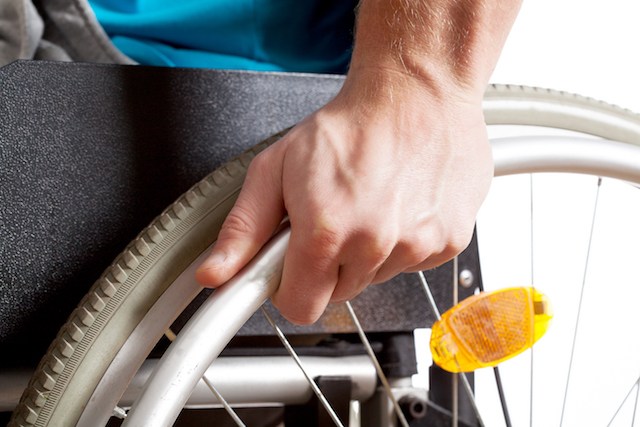How Many Hours Can You Work While on Permanent Disability in Pennsylvania?
Pennsylvanians receiving Social Security Disability Insurance (SSDI) benefits may wonder whether or not they can still hold a job and earn additional income. While you can, you’ll be limited on how many hours you can work.
Generally, self-employed SSDI benefit recipients in Pennsylvania are limited to working just 45 hours a month. Non-self-employed recipients are limited on income, meaning they can likely only maintain a part-time job at the most. The Social Security Administration (SSA) keeps track of working hours and income to ensure recipients remain eligible. If you work too much, the SSA can revoke your access to SSDI benefits. It’s important to consult an attorney so that you understand how many hours you can work while maintaining access to permanent disability benefits in Pennsylvania.
Our lawyers are dedicated to helping disabled Pennsylvanians take advantage of the benefits available to them. For a free case evaluation with the Pennsylvania disability lawyers at Young, Marr, Mallis & Deane, call today at (215) 515-2954.
How Many Hours Can I Work While on Permanent Disability in Pennsylvania?
If you’ve recently been injured in a catastrophic accident or diagnosed with a life-altering disability, you may be eligible for Social Security Disability Insurance benefits. Before you start receiving benefits, it’s important to learn whether you can still earn an income and how many working hours you’re limited to working in Pennsylvania.
SSDI benefit recipients in Pennsylvania who are not self-employed do not have to abide by a specific number of working hours to remain eligible for benefits. Self-employed SSDI benefit recipients who don’t receive an hourly wage are limited to working just 45 hours a month in Pennsylvania.
Generally speaking, non-self-employed SSDI benefit recipients can only work a part-time job if they want to earn additional income. If you were able to work a full-time job, it is likely you would not qualify as “disabled” under the SSA’s definitions, and you would be denied benefits entirely. The number of hours you can work will depend largely on your salary or hourly wage, so it’s important to contact a Philadelphia disability lawyer for clarification.
How Much Money Can I Make While on Permanent Disability in Pennsylvania?
Individuals receiving SSDI benefits in Pennsylvania that still work part-time and are not self-employed can only earn a certain amount of additional income per month. If you earn more than the limit, you could unknowingly enter into a Trial Work Period and ultimately lose access to SSDI benefits completely.
Substantial Gainful Employment Limits
While SSDI benefit recipients aren’t limited by a specific number of working hours if they’re not self-employed, they can generally only earn $1,350 in additional income. Permanently blind Pennsylvanians can earn up to $2,260 per month in income and remain eligible for SSDI benefits. These thresholds are known as substantially gainful employment limits.
That said, things can get complicated if you earn over $970 in a month, even though that’s below the threshold. This threshold is used for something called a “trial work period” (TWP). If you expect to earn over $970 in additional income while receiving SSDI benefits, speak to a Pennsylvania attorney. It’s important to understand the potential implications of working too much and how doing so can impact your access to SSDI benefits.
Trial Work Period Limits
When SSDI benefit recipients in Pennsylvania earn over $970 in a month, they will automatically enter into a TWP. Trial work periods last for a total of nine months, after which SSDI benefits may get revoked. Following a nine-month period of earning over $970, there will be a grace period where you can still receive benefits. This grace period includes the month your benefits cease and the following two months. After that, Pennsylvania residents remain in a re-entitlement period for 36 months.
TWPs can be helpful for Pennsylvania SSDI benefits who want to see if they’re capable of returning to work. That said, they can be difficult to manage. Your Quakertown disability lawyer can help you avoid a TWP or use it to your advantage so that you can still receive SSDI benefits while maintaining a job.
What Happens if You Work Too Much
You could lose access to your SSDI benefits if you work too many hours and earn above the threshold in Pennsylvania. This can also happen if you unknowingly enter into a TWP and proceed to earn too much over nine months. Obviously, this is not ideal for individuals who expect to receive permanent disability benefits in Pennsylvania. Tracking your income and working hours can be difficult, so it’s wise to consult an experienced attorney to help you ensure you don’t work too much and earn over the limit to receive SSDI benefits in Pennsylvania.
How Are Working Hours Tracked for Pennsylvanians Receiving Permanent Disability Benefits?
The Social Security Administration will track your working hours and additional income if you’re an SSDI benefit recipient in Pennsylvania. Tracking methods vary depending on whether a recipient is self-employed or not.
If you’re self-employed, the Social Security Administration may use one of two methods to track your monthly working hours. If you’ve received SSDI benefits for over two years, or if you do freelance work or start a small business, the SSA will track your working hours using the countable income test. If you’ve been receiving SSDI benefits for less than two years, the SSA will use what’s known as the three tests, which include the significant services and income test, the comparability test, and the worth of work test, to track your monthly working hours.
Pennsylvanians who are not self-employed but wish to continue to work while receiving SSDI benefits will also have to report their monthly income to the SSA. Using this information, the SSA will track your monthly income to ensure you are not working too much and are still eligible for SSDI benefits.
How Many Hours Do I Have to Work to Qualify for Permanent Disability Benefits in Pennsylvania?
Before qualifying for permanent disability benefits in Pennsylvania, you must have a work history. With this information in mind, Pennsylvanians may wonder how many hours they must work to qualify for SSDI benefits at all.
One of the major eligibility requirements for SSDI benefits in Pennsylvania is having a work history. You may have noticed that taxes are taken out for Social Security when you get your paystubs. By working overtime, Pennsylvanians essentially pay into the system, making them eligible for SSDI benefits if they sustain a permanent disability.
The more hours and years you work, the more credits you get. Generally, individuals with 40 work credits, or those who have worked upwards of ten years, are eligible for SSDI benefits. That being said, younger Pennsylvanians may still be eligible for SSDI with even fewer credits. It’s important to contact an experienced West Chester disability lawyer to learn whether or not you’ve worked enough hours to qualify for SSDI benefits.
Call Our Pennsylvania Attorneys Today to Learn More About Permanent Disability Benefits
If your permanent disability benefits have been revoked because you worked too many hours in Pennsylvania, reach out to our Allentown disability attorneys for a free case evaluation with the Springfield disability lawyers at Young, Marr, Mallis & Deane, call today at (215) 515-2954.






























